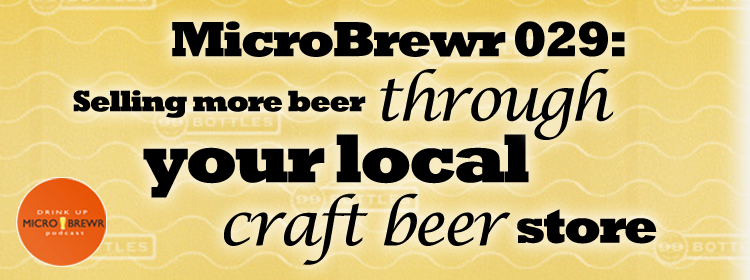MicroBrewr 077: The importance of writing your goals
Podcast: Play in new window | Download | Embed
Subscribe: RSS
Michael Peticolas learned about homebrewing from his mother. After achieving all the goals he set for himself in the legal field, he decided to pursue his passion of beer with Peticolas Brewing Company in Dallas, Texas.
Michael says he feels very fulfilled with having achieved his list of goals. He saved a lot of money while working in law, which allowed him to start his brewery debt free.
“We didn’t open up this big huge, grand brewery, which I see all over the place,” said Michael. “This was my money. So my wife and I decided, ‘How much are we willing to lose?’ Most small businesses go out of business within 3 years.”
“I’d rather fail than to have not tried it at all.” [Tweet This]
“If you don’t know how to write a business plan,” Michael advises, “learn how to write a business plan.”
The process of writing a business plan helps:
- Delve into the potential problems
- Focus on completing your goals
“Plan in the beginning,” instructs Michael. “Address the good news and the bad news, up front. That business plan is going to guide you. So put in the time before you get started.”
“It is going to make you answer the difficult questions that are going to cause you to go find the resources to help you address those issues.”
Related: MicroBrewr 064: How to write a business plan for a brewery
Three and a half years later, they have 10 employees and expanded capacity from an initial 3,000 BBL to 9,000 BBL.
“Not only am I trying to put together an awesome brewery, but I’m trying to wind back the clock to 1950 when folks worked for one employer for 20 or 30 years. So I concentrate on making us an awesome place to work.”
- Health insurance
- 401(k) plan
- Take care of the market, consumers, retailers and employees
“I’d rather hire someone I’ve known and connected with than just some stranger who looks really awesome on paper.”
Brewery specs:
Kettle size: 15 BBL.
Size and quantity of fermentation tanks: 12, 30-BBL fermenters.
Size and quantity of bright tanks: 3, 30-BBL bright tanks.
Annual brewing capacity/last year’s production: Added tanks yesterday, changing capacity from 6,000 BBL to 9,000 BBL. Production last year was 3,500 BBL. On pace for 5,000 BBL this year.
Square footage: 9,000 sq. ft.
Years in operation: 3.5 years (batch one brewed December 30, 2011).
Listener question:
From Cianna Dona: Where did you get the capital to start?
Can’t-go-without tool:
Hand-held temperature gauge.
Book recommendation:
- Traction: Get a Grip on Your Business by Gino Wickman.
Check out the entire list of recommended books, click here.
An upcoming beer style:
Sour beers
Other resources:
- Great American Beer Festival, Brewers Association.
- New Glarus Brewing, New Glarus, Wisconsin.
- Avery Brewing, Boulder, Colorado.
- Goldman Sachs 10,000 Small Businesses.
- Organic Gardener Podcast.
You can reach Michael Peticolas and Peticolas Brewing Company at:
Sponsors:
Download a free audiobook.
Support MicroBrewr
Help keep MicroBrewr on the air. CLICK HERE for ways you can help.





